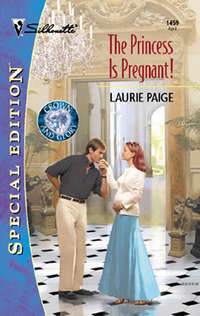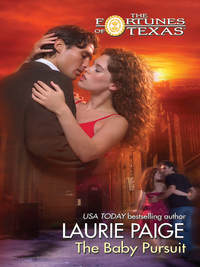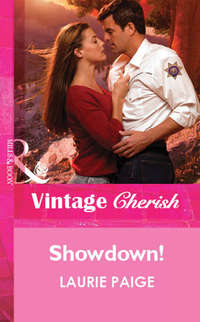
Полная версия
Under The Western Sky
“I’ll cooperate,” she assured him coldly. “I want to clear my name as soon as possible and put this experience behind me.”
And you, she added silently. She wanted him out of her life. He was a threat, although she couldn’t say how.
When he rose, she, too, stood. He rattled the doorknob, the buzzer sounded and he walked out, leaving her standing behind the metal bars of the tiny cell. She immediately experienced the sense of abandonment again, as if he was her only savior in a world she no longer knew.
She rubbed her wrists, but there were no purple marks from fingers digging too harshly into her flesh. She remembered how careful he’d been when examining the priceless pottery and the way he’d stared into her eyes as if looking directly into her soul. She’d never felt that before. For the briefest moment, she wondered what it would be like to have him wrap her in his arms again, to feel his lips on hers…
She blinked, appalled at the strange path her mind had taken. Pressing her hands against her eyes, she felt dismay, anger, exasperation and other feelings too tangled to comprehend.
Glancing around the cell, she made up her mind to fight fire with fire. She had to smile. She knew just who she needed to get in touch with. Special Investigator Aquilon might be a force to be reckoned with, but she wasn’t without resources of her own.
“Sergeant,” she yelled. “Sergeant, I need to talk to you.”
Chapter Three
Tony hit the snooze alarm twice before he could drag himself out of bed and into Sunday morning. After washing up and dressing, he wandered into the kitchen and poured a cup of fresh coffee, which was ready thanks to the modern marvel of a timer on the coffeemaker.
What the heck was he doing up at six-thirty when this was the one day of the week he could catch up on his sleep?
Oh, yeah, the prisoner. He had work to do today.
He thought about going over and taking her to breakfast before they went searching for the man who gave her the pottery to deliver. If there was such a person, he added, frowning at his tendency to believe her story without any corroborating evidence.
Except for the earnestness of her gaze when she’d looked him directly in the eye. And the set of her mouth, which turned up at the corners in the most alluring way, when she’d stated she wanted to clear her name.
He groaned under his breath as his body went into full alert. Last night his dreams had been so hot it was a wonder the bed hadn’t caught fire. Without having to think about crimes and arrests, his subconscious had been free to consider other delightful things a man and woman could do when they were in such close proximity.
A cold—very cold—shower helped get things calmed down. After a quick breakfast, he headed for the station house. While she was technically his prisoner, there were papers to fill out before he could whisk her out of jail.
One of the problems with his line of work was jurisdiction. When it came to ancient artifacts, who was the authority—the park service? The tribal police? The local state and/or county officials? It was always a pain to sort through and often only a very fine, blurry line separated the legal powers. In this case, because Chuck had been in on the arrest and the Hopi claimed all artifacts as part of their culture, it made the question even more contentious.
However, he’d found he could usually work through the system with a little diplomacy. Since Julianne was cooperating, he didn’t see any reason to keep her in jail.
Neither did a lot of other people.
Bedlam reigned when he arrived at the state police headquarters. He had to push his way through a mob to get to the desk.
“What’s going on?” he asked the detail sergeant from the previous day when he and Chuck had brought in the suspect. At that moment he noticed Julianne standing to one side, her purse in her hand. “Who let her out?” he demanded. “Who authorized it?”
“The county judge,” the sarge replied. “Apparently her brother called the chief of the tribal council. The chief called the tribal attorney, who called the county judge. The judge’s assistant came in with a release order this morning, along with about fifty members of the Native American Women’s Advisory Council and one of the tribal elders. She posted bail, so she’s free.”
Tony turned to Julianne, whose innocent smile would have melted the heart of an iceberg.
“How did your brother get word?” he asked, giving her a narrow-eyed scowl.
“Last night after you left, the sergeant let me use my cell phone to call him…after I explained the governor would hear about my arrest and false imprisonment as soon as Chief Windover returned.”
The tribal elder, wearing a traditional Hopi braid and two eagle feathers, stepped forward. He looked old enough and wizened enough to be an artifact from the dig.
“The tribe has jurisdiction in the case,” he informed Tony. “The council had an emergency meeting last night and decided Julianne was to be freed.”
“Well,” Julianne said. “I’m ready to go. Since I have my car, I can lead you to the spot, then return home while you arrest everybody,” she said brightly.
“You’ll ride with me.” It was time for him to take charge. “I have authority in this case,” he told the elder and the two older women lined up beside him. “I was planning on releasing her this morning. She’s cooperating in the investigation.”
“Of course she is,” one of the women said. “She’s a wonderful person. She saved my grandson’s life when he stopped breathing shortly after he was born.” Her glare dared him to contradict her statement.
He sighed and turned to the desk sergeant. “Give me the custody papers. I’m taking charge of her.” He doggedly filled out the papers in spite of protests from the NAWAC. “She’ll be free to go home as long as she doesn’t leave the state,” he told them.
“It’s okay,” Julianne spoke up when the women looked as if they might attack. “He and I are working together on this. Thank you so much for coming down and helping me out. I really appreciate it.”
Tony watched as she hugged the elder and his two primary sidekicks. After promising to kick butt if there was more trouble, the elder and the NAWAC departed.
“Are you ready?” he asked sardonically.
“Yes. Is it okay if I drop my car at my house?”
He nodded, feeling very gracious considering she was in his custody and had nearly gotten him staked out on an anthill by her defenders. He followed her out of town and onto Highway 666, which was where her house was located.
Hmm, 666. Wasn’t that the symbol of the devil?
Yeah, and it suited her to a tee.
He would have laughed but it hurt his nose to move his facial muscles that much.
Outside, Julianne flinched at the brightness of the sun on the eastern horizon. She was aware of the park service vehicle that stayed on her tail as she drove out of town.
Two miles up the highway, she turned into the driveway of an adobe two-bedroom cottage that was part of her work compensation. She was thinking of buying it if the council extended her contract. She parked under the lean-to carport and hopped out.
The morning air was like a magic elixir as she inhaled deeply. Freedom. She’d never take it for granted again. Although she felt like laughing and running before the breeze like a bird, she approached the SUV sedately. “Would you mind if I showered and changed clothes before we left?”
The chill of the night lingered on the desert. She rubbed the goose bumps from her arms while she waited for his decision. “I’ll make you breakfast,” she added when he didn’t answer right away.
“I’ve eaten. But I could use a cup of coffee while I wait.”
Her eyes widened with pleasure when she realized he’d given his approval. “Sure. Coming right up.” She rushed to the front door. “Uh, you can come in.”
After putting on a pot of coffee and showing him where the cups were, she dashed into her bedroom and closed the door. She took the fastest shower in history and returned to the kitchen in fresh slacks and a tank top with a matching overshirt. He stood at the back door that opened onto a covered patio and drank from a coffee mug, his eyes on the arroyo, dry now because there’d been no rain in over two weeks, that wended its way along the edge of the property.
“I’m ready to go, Special Investigator Aquilon,” she said, smiling.
He gave her a wary glance. “My name’s Anthony. Everyone calls me Tony.”
“I’m Julianne, Jules, rhymes with mules, to my smart-mouth brothers.” She hadn’t a clue as to why she’d added this bit of family information.
“One of those smart-mouth brothers got you out of jail.”
“Calhoon,” she told him. “Cal’s the oldest, I’m the middle and Sam’s the youngest in our family. Dad used to tease the boys, saying we three kids were like an Oreo and I was the sweet in the middle.”
Her guest carefully touched his nose, which she thought looked much better, hardly any swelling at all. “Yeah,” he said, “real sweet.”
When she laughed, he shook his head, but the corners of his mouth turned up a bit.
“Where does your family live?” he asked.
“Albuquerque, which is where I was born and raised. My brothers live there, too.” She filled a travel mug with coffee. “Well, I’m ready for the great adventure.”
He looked heavenward as if asking for patience.
“I’ve never arrested anyone before,” she explained.
“You’re not now. I’m the arresting officer.”
“Whatever,” she said blithely. Nothing could ruin her exuberance at being out of jail.
He led the way to the SUV and saw her inside before climbing in the driver’s side. “Which way?”
“North.” She watched his hands as he put the truck in gear and backed out.
She’d thought of him last night before she fell asleep, of the strength in his hands and how his body had felt against hers, pinning her in place against the dusty car. The long, hard ridge in his jeans had been unmistakable.
Like yesterday, a strange clamoring rose in her, as if a dormant part of her had awakened and demanded attention. She’d always been cautious, though, so this internal heat was surprising.
After they were on their way, she asked, “Are you still pressing charges against me? I was told I would have to report to a judge for a hearing.”
He flicked her a probing glance. The man had a way of looking a person over as if he could dig out the truth no matter how much she tried to hide it.
“If your alibi holds up, then we’ll see,” he said.
“What alibi?”
“If Josiah Pareo confirms your story, then the onus will be on him to come up with a good explanation for having those artifacts.”
“He will,” she said. “He and his wife. They were a nice young couple, very concerned about their new baby and its welfare. I’m sure he’ll straighten this out.”
“Hmm,” the special investigator said.
It was a cop’s duty to be skeptical, so she decided to forgive him for his doubts.
“How far up this way?” he asked, once they were on the highway heading toward Ship Rock.
“Take a right when you get to the Coyote Canyon Road. Go almost to the turnoff to Standing Rock. Turn left—”
“Okay, alert me when we get to the left turn,” he interrupted, a frown line creasing his forehead.
She missed his smile, she realized, as he reverted to the stern investigator of yesterday. Yesterday! Less than twenty-four hours, yet she felt as if she’d lived an eon since then. Studying his handsome profile, it seemed odd that she’d only just met this man.
“What’s funny?” he asked.
“I was wondering if we’d met in another life. You seem awfully familiar.”
“Yeah, right.”
She laughed at his sardonic tone, then concentrated on the road so she wouldn’t miss the dirt track to the couple’s trailer after he made the correct right turn. “It’s coming up. Here. Turn left here.”
He made the turn. A dust trail rose behind them. It was slow going for the next two miles due to the ruts. They rounded the last curve. The coyote fence was there, but the yard was empty.
“It’s gone,” she said. “The trailer is gone.”
Julianne went inside the gate, which had been left open, and walked around the rectangle of yard. A dry creek bed and two rows of stacked rocks indicated where the house trailer had once stood. Faint traces of wavy lines were barely visible in the gritty dirt.
“He used a piece of brush to mark out the tire treads,” Tony told her, squatting on his haunches to study the ground.
“Why?”
“To cover his tracks.”
She shook her head in disbelief as she stared at the ground where once a home had been. “I was here two days ago. No, three. The baby was born on Thursday. I filled out the papers and did the baby’s footprints for the birth certificate so I could file it with the tribal records office.”
“Well, they’re gone now. Someone must have gotten word to them that there was a sting operation going down. Did you get prints on the parents?”
She nodded. “The tribe has us do thumbprints.” Her eyes widened as she realized the implication of his words. “The shop was a fake?”
“A front,” he corrected. “We set it up and let it be known we wanted Indian goods. Good Indian goods,” he added with a significant glance at her.
“The pottery,” she murmured, disappointed in the couple who’d certainly played her for a fool. “I can’t believe they stole those things.”
“Believe it,” he said. “What about the prints? Did you keep a record of them?”
“No. You can get a copy from the tribal office.”
“Fine.”
She observed while he looked over the site.
A large section of coyote fence, which was made from the canes of the infamous ocotillo nailed side by side onto wooden supports, had been loosened and pulled aside in order to drive the trailer through to the dirt lane.
The tracks were brushed out on that side of the fence, too. She recalled something. “He drove a blue pickup,” she told the special investigator. She described the make and model and a dent in one fender.
“What else do you remember about them?”
“Well, they were young, both twenty-one. They belonged to the Hopi. He was a mechanic.”
“Ah,” the detective said.
“Ah, what?”
“Did he work at the garage near the shop?”
“I don’t know.”
His eyes narrowed. “Maybe the mechanic who watched the big chase scene alerted him to the bust. I’ll check on that tomorrow.” He made a note in a little spiral pad, then searched around once more. “There’s nothing here, not even a trash pile,” he finally concluded.
“You’re very thorough.”
Those dark eyes cut to her like the flick of a whip on bare skin. “That’s my job,” he stated, and headed for his vehicle. He didn’t seem to think she was much help.
She trailed behind him.
“What’s wrong?” he asked when they were on the road.
“I’m worried about them and the baby.” She sighed. “Life can be so hard. They don’t have much money. Probably someone promised them a large cut of the profits if they would sell the artifacts. They didn’t mean any harm.”
“Yeah, they were innocents.”
She sighed again. “I don’t think that. Every population has its share of good people and bad. The couple must have desperately needed money, though.” She studied him. “You know a lot about artifacts. Is your interest because you have Native American ancestry?”
He nodded. “My great-grandmother was Sioux.”
“I see.”
“You got time to go out to the dig?” he asked, stopping at the county road.
She was surprised by the invitation. “Yes. It sounds very interesting.”
“I’d planned on coming out and checking over the security at the site this morning. Since we’re this close, it would be simpler to go there now.”
He turned left instead of right and headed past the rock formation that gave the area its name. There were two Chaco culture sites, he told her. He took the road to the second one, which was farther north from where they were.
“Have you been here?” he asked as they neared Pueblo Bonito.
“Once, a long time ago with my father and brothers. I loved exploring the village. It reminds me that people haven’t changed that much in hundreds or thousands of years. They needed shelter and ways to make a living in order to provide food and clothing for their families back then just as we do today.”
“And they built apartment buildings and lived in towns, too,” he added, driving down a road that was off-limits except for park service personnel. “Like the Roman roads, theirs were built to last.”
“Yes,” she agreed. When they arrived at the main ruins, she murmured in awe of the multistory dwellings that backed up to a sandstone cliff, and tried to recall all she’d read about the people who built them. “I’ve forgotten when this area was occupied.”
“The Chaco culture flourished from around 850 to 1250 A.D.,” he told her. “We know of at least thirteen major pueblos. This one, Pueblo Bonito, was one of the leading pre-Columbian villages outside Mexico. It was a hub of commerce, administration and ceremony. See the great house?”
She peered in the direction he pointed as he drove slowly along the canyon. “Yes.”
“It’s four or five stories high and has over six hundred rooms and forty kivas, which were ceremonial chambers. The whole settlement was planned and executed in stages. Can you imagine the knowledge in engineering, architecture and masonry required for such an undertaking?”
“All without powered tools,” she added.
“Yes.”
“What happened to the people who lived here?”
“They’re still around. The Pueblos and Hopi have oral histories of migrations from this area. The Navajo, although they aren’t considered Puebloan, also trace some of their clans back to Chaco.”
Julianne stared at the ruins and imagined the bustling community going about its daily business. Although the park wasn’t crowded, she noticed two groups of people being led through the stone rooms by park rangers. One of the rangers spotted them and waved. Tony waved back.
The road became increasingly rutted. She held on to the grip above her head and tightened her seat belt.
“Not long now,” Tony said.
They arrived at the end of the dirt road. He parked under the shade of a tree and waited at the front of the SUV for her to join him. He held the No Admittance tape up while they ducked under it.
After walking up a shallow arroyo they came upon a cliff. It was not as high as the one back at the village but beautiful in its pastel desert colors. She could see the stone buildings partially revealed under the talus that had fallen on the dwellings over a long period of time.
A shiver danced down her spine as she realized they were the only two living people there. The wind whispered through a copse of willows and cottonwoods, sounding like the sibilant groans of ghosts who still occupied the site.
“You hear it, too,” he said.
“What?”
“The voices of the dead.”
The hair stood up on her arms. She rubbed the chill away and stepped out of the shadow of the trees into the sun. “It’s an eerie place.” She spoke in a soft voice.
He nodded. “Come on.”
Taking her hand in his big warm one, he led the way over the rocky debris. She was glad she had on sturdy sneakers. The going was treacherous.
At the archeological dig, string marked depths and boundaries that had been explored. Tony muttered a curse.
“Anyone could walk in here and take anything they wanted,” he said in disgust. “I told the site manager they needed evening and morning surveillance at the very least.”
Around the side of the cliff, out of sight of the main research area, they found another pile of displaced stones. It was obviously the work of thieves, the digging showing signs of being hurried, the culprits uncaring of those items they destroyed in the process. Tony picked up several pieces and fitted them together into a partial vase. His face took on a grim expression.
Julianne laid a hand on his arm. “I’m sorry.”
He shrugged before carefully wrapping the pieces in the shirt he removed, then he trudged on.
She couldn’t help admiring the portrait he presented against the rugged landscape. He was built like one of the wild mustangs that roamed the West—lean but muscular, streamlined as one should be who raced the wind….
“The local tribes have been advising us on the excavating,” he said after a couple of minutes of silence. “They believe each thing has its time. When that time is finished, whether for a village, tree, animal or person, it should be left to return to the earth. We’re doing a very limited exploration here, then we’ll backfill the ruins and leave them at rest.”
They explored a couple of rooms that had been cleared before he unlocked a nearby trailer that held mostly potsherds and flint tools. There were photos of a few preserved baskets.
“Don’t touch anything,” he warned. “This site predates construction of the great houses,” he explained. “It’s an example of the early villages as clans moved into the canyon. It’s called the Basket-makers III period. The name comes from the Pecos classification of Pueblo cultures.”
“Isn’t it unusual to find so many intact utensils?” she asked, looking the treasures over and resisting the urge to pick them up for a closer study.
“Yes. I think the people abandoned the site due to a significant rock fall. Lots of stuff got buried.”
Конец ознакомительного фрагмента.
Текст предоставлен ООО «ЛитРес».
Прочитайте эту книгу целиком, купив полную легальную версию на ЛитРес.
Безопасно оплатить книгу можно банковской картой Visa, MasterCard, Maestro, со счета мобильного телефона, с платежного терминала, в салоне МТС или Связной, через PayPal, WebMoney, Яндекс.Деньги, QIWI Кошелек, бонусными картами или другим удобным Вам способом.








